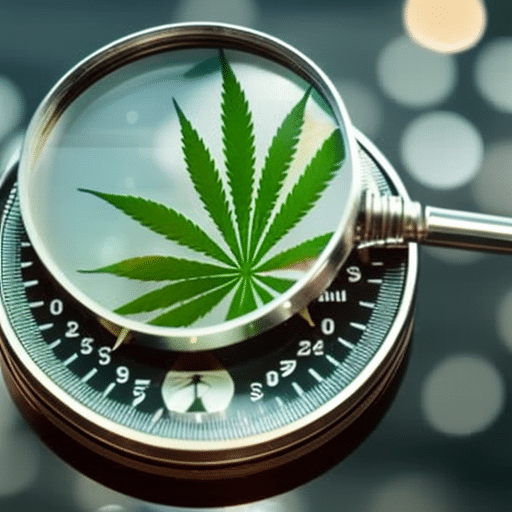This comprehensive review explores the impact of medical marijuana legalization in 2023 from various perspectives. Key areas encompass historical context, economic implications, public health outcomes, societal reactions post-legalization, and future projections. This scholarly examination provides critical insights to stakeholders interested in understanding the broad effects of this legislative change on society and the economy.
Table of Contents
The Historical Journey: From Ancient Remedies to 2023 Legalization

The historical context of medical marijuana legalization provides a rich backdrop against which the developments and implications of its legalization in 2023 can be thoroughly understood. Going back to ancient uses, evidence reveals that cannabis was utilized for medicinal purposes as far back as 2737 BC by Chinese Emperor Shen Neng. Throughout antiquity and into the Middle Ages, this plant held a significant place in various cultures’ pharmacopeia due to its versatile therapeutic properties.
However, with the advent of the Prohibition era in the United States during the early part of the twentieth century, an intense crackdown on drugs ensued. Cannabis was lumped together with other substances deemed illicit, leading to its widespread criminalization. Despite its proven medicinal benefits from past eras and emerging scientific studies, cannabis remained prohibited for much of modern history.
This prohibition not only suppressed potential advancements in medical treatments but also resulted in social injustices via punitive drug laws. The liberation from such constraints began gaining momentum only towards the late 20th century when states started considering decriminalizing or legalizing medical marijuana —a shift that culminated with full-scale legalization in 2023.
Economic Impact: From Taxation Strategies to Pharmaceutical Evolution

Economic implications of sanctioning therapeutic cannabis in 2023 involve shifts in public revenue, job creation, and changes within the pharmaceutical industry. Taxation strategies are expected to undergo significant alterations as new revenue streams emerge from regulated sales of medical marijuana. This has the potential to boost public funds, consequently facilitating increased investment in sectors such as education and infrastructure.
Employment opportunities may also be influenced by the legalization of medicinal cannabis. Agro-industries related to the cultivation, distribution, and retail of this therapeutic herb could see an upsurge in jobs. Notably, these are not limited to low-skilled roles but extend across a variety of functions including research and development, quality assurance, and management.
In parallel with these developments is the anticipated transformation within the pharmaceutical sector. The integration of medicinal marijuana into mainstream medicine necessitates a reevaluation of existing paradigms concerning drug production and usage. This could trigger innovation while simultaneously challenging established players within the industry to adapt their practices or risk obsolescence. However, it is essential that this transition is managed equitably to ensure that potential benefits do not compromise patient safety or undermine broader health objectives.
Public Health Outcomes Following Medical Marijuana Legalization

Public health outcomes subsequent to the sanctioning of therapeutic cannabis will likely present a complex interplay of benefits and challenges, necessitating careful monitoring and regulation. It is crucial to consider the nuances in the potential effects on Marijuana Addiction Rates and Patient Accessibility.
- Marijuana Addiction Rates
- The legalization could lead to an increase in addiction rates due to greater availability.
- Conversely, it might also facilitate more research into addiction prevention methods.
- Patient Accessibility
- Legalization may enhance access for patients who can benefit from its therapeutic use.
- On the other hand, it might also expose vulnerable populations to misuse.
This analysis suggests that while there are potential benefits such as increased accessibility for those requiring medical marijuana, there are also significant concerns surrounding addiction rates that must be carefully addressed. Therefore, comprehensive policies need to be implemented to ensure beneficial access while minimizing potential harm. As society moves towards greater liberation in medicine choices, these considerations become increasingly pivotal for public health policy formation.
Societal Reactions and Perceptions Post-Legalization

Societal reactions and perceptions following the sanctioning of therapeutic cannabis present an intriguing area for exploration, with potential variations across demographic groups, cultural contexts, and individual beliefs. It is essential to note that despite the legalization of medical marijuana in 2023, its acceptance has not been uniform across different sections of society.
Research indicates a notable shift in societal attitudes towards policy acceptance and stigma reduction associated with therapeutic cannabis use. The legal endorsement appears to have initiated an essential process of normalization within broader social discourse. However, this transformation remains nuanced and variable. For instance, older demographics continue to exhibit more conservative attitudes.
An analysis reveals two key factors influencing these variations: information exposure and personal experience. Increased access to factual information about medical marijuana seems vital for enhancing policy acceptance among skeptics; simultaneously, direct or indirect experiences with therapeutic cannabis also play a significant role in altering perceptions.
Future Projections and Potential Impacts Beyond 2023

Future projections suggest an evolving landscape for therapeutic cannabis beyond 2023, with potential influences on various aspects of society, the economy, and public health. The analysis of these future trends is crucial for understanding the comprehensive impacts and policy implications of such advancements.
Societal Impacts
- Public Health: Increased access to therapeutic cannabis implies potential alterations in public health perspectives. It may pave the way for novel treatment methods while reducing dependency on conventional drugs with harmful side effects.
- Social Acceptance: A shift towards normalization of cannabis could lead to reduced stigma and increased acceptance in society.
Economic Impacts
- Market Growth: Legalization can stimulate economic growth by creating new markets and job opportunities.
- Tax Revenues: Governments could benefit from substantial tax revenues generated from regulated cannabis sales.
- Policy Shifts & Technological Advancements
- Policy Changes: Comprehensive reforms in drug policies are expected, which would need careful planning and implementation.
- Technology Innovations: The field might see technological advancements enhancing cultivation efficiency, product quality, or efficacy tracking mechanisms.
The liberation sought by advocates lies not merely in legalization but also in realizing its multifaceted benefits while mitigating associated risks through effective policy-making and innovative technologies.
Frequently Asked Questions
What Are the Potential Side Effects of Using Medical Marijuana?
Potential side effects of medical marijuana use include impaired cognition and potential for recreational misuse. Additionally, the presence of marijuana allergies may lead to adverse reactions in susceptible individuals. Further research is warranted.
What Conditions Are Eligible for Medical Marijuana Treatment?
Therapeutic cannabis benefits are recognized for conditions such as chronic pain, multiple sclerosis, and epilepsy. However, medical marijuana misconceptions may hinder its use in other potentially responsive diseases subject to further scientific investigation.
How Does the Process of Obtaining a Medical Marijuana Card Work?
Obtaining a medical marijuana card involves meeting specific Card Eligibility Criteria, typically inclusive of diagnosed conditions. The process respects Patient Confidentiality Concerns, requiring documentation from a healthcare provider and adherence to state-specific regulations.
How Are the Potency and Dosage of Medical Marijuana Controlled?
The potency and dosage of medical marijuana are controlled through meticulous methods such as cannabinoid extraction and strain selection, ensuring consistent therapeutic benefits while minimizing potential adverse effects.
Are There Any Restrictions on Who Can Grow or Sell Medical Marijuana After Its Legalization?
Market regulation for medical marijuana, post-legalization, typically imposes restrictions on cultivation and sale. Licensing procedures often require compliance with stringent standards, ensuring only authorized entities participate in this highly regulated sector.
Conclusion
In conclusion, the legalization of medical marijuana in 2023 brought significant changes across economic, public health, and societal domains. Economically, it spurred growth while improving patient outcomes in healthcare. However, societal reactions varied considerably. Future projections suggest further potential implications that require ongoing research and vigilance to ensure optimal societal benefit from this shift in drug policy.

